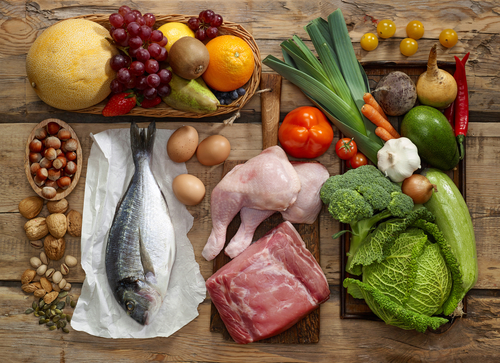How Familiar Are You With Vitamins?
How Familiar Are You With Vitamins?
We need vitamins to stay healthy. Our body needs them in varying quantities depending on gender, age, and its condition to function properly. Some of the vitamins are produced by the body, while others have to be ingested through a balanced diet or in the form of supplements.
To get you started, Medalerthelp.org devised an infographic that will tell you all the essential facts you need to know about vitamins.
Vitamins – More Info
All in all, there are 13 vitamins, each serving a different function in our bodies. They are categorized into two classes – water-soluble and fat-soluble.
Water-soluble vitamins are vitamins of the B-complex and vitamin C, while fat-soluble ones include vitamins A, D, E, and K.
Ever wondered about the missing alphabets? Well, the other letters (F, G, H, I, J) are not categorized under vitamins because they do not exist or because their names were changed after being reclassified.
For example, vitamin F was reclassified as an essential fatty acid (EFA). Vitamins G and J were reclassified as vitamin B2. Vitamin H became Biotin (B7) and Vitamin I never existed.
Vitamin B
In total, there are eight B vitamins. The combination of all of them is called vitamin B complex (B-co).
Like any other vitamin, vitamin B also has its specific functions along with distinctive deficiency signs. Take vitamin B1 (also termed thiamine) for instance.
It is mainly obtained from trout, soybeans, macadamia nuts, sunflower seeds, among others. Our body needs it for energy, nerve, and muscle function.
Its deficiency signs are fatigue, poor mood, and difficulty with coordination.
About 800 mcg of thiamine a day is sufficient for women and about 1,000 mcg is for men.
Vitamin B7 (biotin) helps with food metabolism and contributes to healthy skin and nails. Some of its natural sources are eggs, salmon, sweet potatoes, and broccoli. Inadequate supply of biotin could cause hair loss and hallucinations.
You may have noticed that the classification of B vitamins is missing some numbers since there are only vitamins B1-9 and B12. The missing B vitamins aren’t considered to be vitamins because they are either essential for plants or are toxic to humans.
For more gripping facts and illustrations about vitamins, check the infographic below:
Vitamins and minerals are responsible for all kind of physiological processes, from digestion to nail and hair growth. HairGuard sheds some more light on how biotin influences hair growth.


One thought on “How Familiar Are You With Vitamins?”